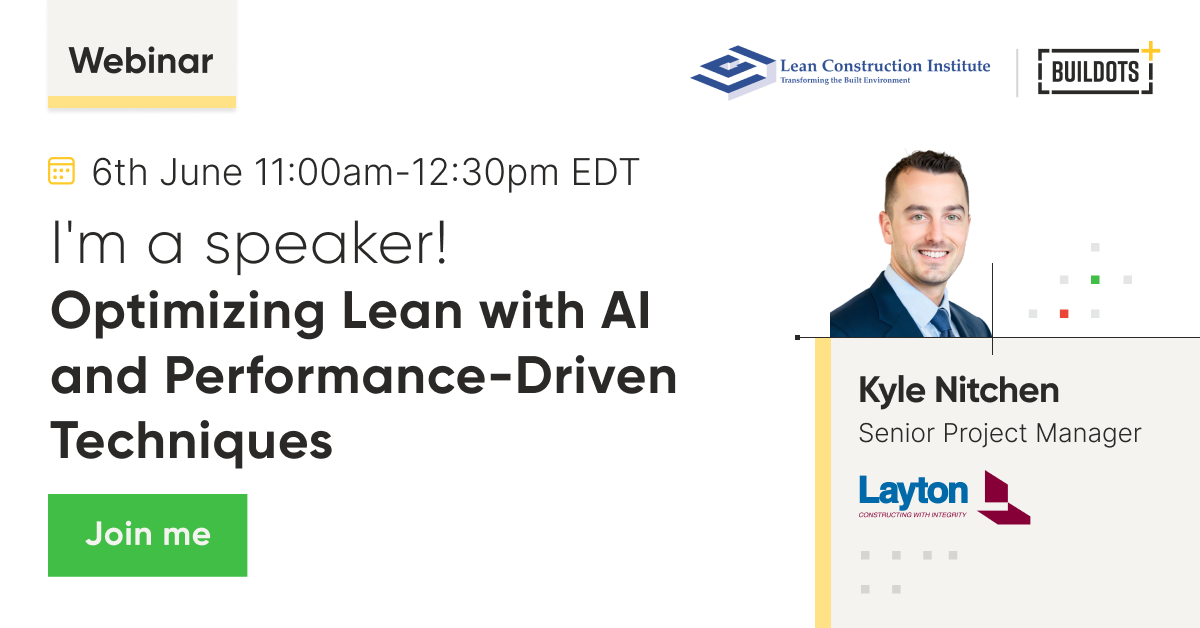👋 Hey, Kyle here! Welcome to The Influential Project Manager, a weekly newsletter covering the essentials of successful project leadership.
Today’s Overview:
It all started with a simple prompt: Your projects will change the moment you...
Each time I made a leadership change with a profound impact, I added it to my running list. These include tiny actions, mindset shifts, behavior changes, hacks, and everything in between.
The list covers challenges I’ve faced (and still face). These struggles are common, but by confronting them head on, we’re able to conquer them more effectively.
Your Projects Will Change The Moment You...
Filed under: Learning & Growth, Project Management
It all started with a simple prompt:
Your projects will change the moment you...
Years ago, I started noting lessons learned after each project and saved them in my digital notebook. Each time I made a leadership change with a profound impact, I added it to my running list.
These include tiny actions, mindset shifts, behavior changes, hacks, and everything in between.
Each entry followed the same format:
Your projects will change the moment you stop [X] and start [Y].
The list covers challenges I’ve faced (and still face). These struggles are common, but by confronting them head on, we’re able to conquer them more effectively.
Without further ado, let's move on to the list:
Your projects will change the moment you...
1. Stop focusing on speed and start focusing on flow.
It’s not just about how fast one person moves; it’s about how efficiently everyone moves together. As the Navy Seals say, “Slow is smooth, and smooth is fast.” Every action on-site needs to flow to a rhythm. Prioritize flow, create a smooth process, reduce stress, and watch productivity skyrocket.
Check out this Takt Planning & Control Introduction course to get good at this.
2. Stop relying on sending emails and start picking up the phone.
Emails are great for documentation but often misused. Projects are built by humans. A quick phone call can resolve issues immediately, build stronger relationships, and improve communication. Don't hide behind your inbox—make that call and connect directly.
3. Stop focusing on your goals and start focusing on your systems.
Your projects do not rise to the level of your goals; they fall to the level of your systems. Goals are good for planning your progress; systems are good for actually making progress. Instead of fixating on the end result, build robust systems that shape your daily actions. Having a system is what matters. Committing to the process is what makes the difference.
4. Stop speeding up every trade and start targeting your bottleneck.
Demanding everyone works faster won’t actually speed things up. Every production system has a bottleneck that limits overall progress (throughput). Identify this bottleneck and focus your efforts on improving it. Once you optimize the bottleneck, you’ll see a real shift in your project's output. Otherwise, you’re just spinning your wheels.
5. Stop using the contract as a weapon and start using it as a roadmap.
Contracts should guide your project, not create conflicts. When you see the contract as a roadmap, it helps align everyone’s expectations and objectives, leading to more productive interactions. The collaborative “playbook” approach builds trust and teamwork, making the project run smoother.
6. Stop commanding and start communicating.
“If you want to build a ship, don’t drum up the men to gather wood, divide the work, and give orders. Instead, teach them to yearn for the vast and endless sea.” - Antoine de Saint-Exupéry
Commands might get you short-term compliance, but communication will builds long-term commitment.
7. Stop settling for the available people and start selecting the right people.
Your project’s success depends on the people working on it. Leaders of great projects ask: First Who, Then What? You need the right team to do the job, not just the available people. Give a good idea to a mediocre team, and they will screw it up. Give a mediocre idea to a great team, and they will either fix it or come up with something better. If you get the team right, chances are they will get the ideas right.
8. Stop delegating tasks and start delegating goals.
Managers delegate tasks. Leaders delegate goals. One creates dependency; the other empowers the team. Share the bigger picture and trust your team to find the best way to achieve it. Set directions, provide resources, clear roadblocks, and cheer them on. Then, get out of the way and watch the magic happen.
9. Stop valuing perfection and start valuing progress.
Perfectionism is a trap. Focus on progress—every step forward brings you closer to your goal. Embrace the doing and let go of “perfect” because perfect doesn’t exist. Make the most of what time you have now and focus on progress, not perfection.
10. Stop fixing symptoms and start solving root causes.
Symptoms are the expression of a problem, not the problem’s origin. Addressing symptoms might offer quick relief but doesn’t solve the underlying issue. It’s not asking, “What happened?” but “Why did it happen?” Short-term band-aids are replaced with solutions that address the root issue and result in long-term improvement.
11. Stop trying to "be right" and start trying to "get it right."
Ego can blind you to better solutions. Start seeing great questions and the willingness to say “I don’t know, but I’d like to find out” as key leadership behaviors. Being open-minded and challenging your own beliefs helps you grow smarter and lead better. You may realize you don’t know as much as you thought, but that’s a good thing. Every day, you become a little less wrong.
12. Stop measuring activity and start measuring outcomes.
Success is about transformation, not just activity. Focus on metrics that measure progress toward desired outcomes. Good metrics allow you to monitor progress and direct your energies where needed. Your team will adopt more accountability and find the right answers to fit the circumstances.
13. Stop chasing urgency and start prioritizing importance.
Urgent and important things may seem similar, but the difference is huge. Urgent tasks need immediate attention and have clear consequences if delayed. Important tasks, though less immediate, help achieve long-term goals. The goal is to spend most of your time on the important tasks that contribute to your long-term mission, values, or goals.
14. Stop reacting to changes and start planning for variability.
Change is not a question of if, but a question of when and what. Instead of reacting, plan for variability by anticipating potential changes and preparing mitigation strategies. This allows you to adapt smoothly and not disrupt the flow.
15. Stop making decisions in the dark and start illuminating them with data.
Guesswork leads to costly mistakes. I’ve come to learn that collecting and managing the right data is the key to better decisions, efficiency, productivity, and quality. Lean project delivery only works with accurate site information. Metrics like Percent Planned Complete (PPC), Production Pace, Return Visits, Inventory, and Work-In-Process (WIP) are crucial. With accurate data readily available, you can illuminate issues and address them before they impact progress.
16. Stop saying "this is how we have always done it" and start saying "let's find a better way."
Clinging to old methods can stifle innovation. The best way to thrive in environment that’s changing is to change. Keep an open mind to new ways of doing things. Look for ways to reduce waste and listen to fresh perspectives. You might be surprised by what you learn.
17. Stop working with out standards and start setting and enforcing them.
It’s okay to NOT compromise on key policies or values. Standards provide a clear framework for quality and consistency. People should know that if they push, there will be push-back. Cross the line, and consequences follow, especially for items like safety, cleanliness, quality, timeliness, respect, and accountability. If you can't or won't enforce standards, you’ll face many complications while trying to be “the good guy.” Be clear on what you stand for.
18. Stop worrying about schedule dates and start worrying about production rates.
Schedules tell you “who” does “what” by “when”, but they often miss the "how." Every project is a temporary production system governed by operations science. Focus on managing the behavior of the project’s production systems, including: throughput, process design, capacity, inventory, and variability. By using these different levers, you can meet schedule demands and consistently deliver projects on time and within budget.
Ok, last one…
Stop reading this post and start acting on one of the insights from it.
Pick one item from the above that you'll focus on starting now.
Until next week,
Kyle Nitchen
LAST WORD 👋
🎧 UPCOMING WEBINAR
Lean Project Delivery + AI?
Join me on Thursday, June 6th, for an eye-opening webinar hosted by Lean Construction Institute (US) and Buildots: "Optimizing Lean with AI and Performance-Driven Techniques."
I'll be on a panel of experts sharing how Lean project delivery, combined with rich data insights, can help resolve obstacles in construction projects.
Don't miss this chance to learn from:
Jeremy Cortesio, Project Executive at Skanska
Kyle Nitchen, Senior Project Manager at Layton Construction
Chris Vine, DBIA, CM-Lean, LCI-CPC, Project Superintendent at HENSEL PHELPS
Andy Steele, Chief Strategy Officer at Buildots
Moderated by Jessica Herrala
You can register now on the Lean Construction Institute's website.

When you're ready, here’s how I can help:
Upgrade your PM software. Project financials, management, and construction admin. Switch to INGENIOUS.BUILD to evolve from an administrative project manager to strategic project leader.
Get my full toolbox (free). It contains 30+ software and hardware tools I’m using today.
Hold your schedule accountable. Gain stability and flow in your projects with this Takt Planning & Control online course. Use code “Influentialpmtakt” for 30% off!
Advertise in this newsletter. Put your brand in front of 3,000+ construction project managers, leaders, and execs. (Booked out 5 weeks)
Support this Newsletter. The Influential Project Manager articles will remain free, but if you find this work valuable, I encourage you to become a paid subscriber. As a paid subscriber, you’ll help support this work.






